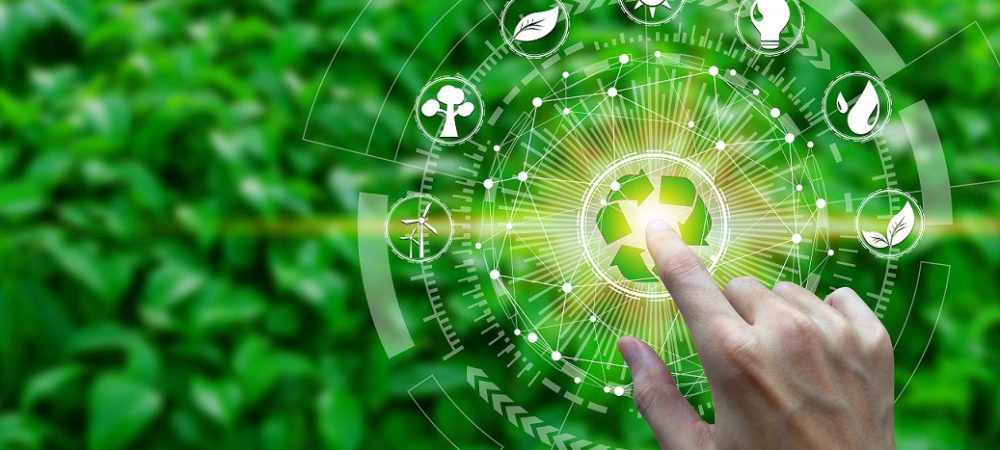Alejandro Chocolat, Managing Director of Dassault Systèmes for Latin America, talks about advances in business technology towards sustainable digitization.

As the world evolves, attention on how we live, how we manufacture products and how we protect the environment increases. Although we are all unique, the world is a community that experiences up and down moments. In this context, undoubtedly, Covid-19 is the greatest example of disruption in recent centuries and, as we seek new approaches to overcome pandemic moments such as the current one, we notice that we are facing a great challenge common to all: having a more sustainable planet.
Over the past few years, we have made important preliminary advances, but now with the pandemic caused by Coronavirus, companies from the most diverse countries have had to accelerate their digitalization journeys towards the Age of Experience. Therefore, technology has taken on an even more central role in business and has shown us that it is really possible to integrate reality through platforms, with immersive digital environments, capable of generating more sustainable products, as well as safer workplaces.
In this new more socially responsible scenario, manufacturing will have to expand its presence, previously limited to four walls, to a global value-added network. Digitalization and automation are already enabling companies to explore virtual environments to verify and implement new manufacturing options, even before physical production begins. However, digitization will grow at an accelerated pace to reduce industrial costs, waste fewer materials and improve performance, as well as the time of arrival of products to the market, always in an agile way to protect the environment.
The good news is that these technologies already exist, and they can help this transformation everyone has dreamed of. Digitalization can transform the journey of production and operation, allowing industries to be more efficient and capable to operate from more sustainable and much more customer-centric structures and business models.
The collaborative work of different areas through 3D platforms and cloud environments will increase productivity and minimize product problems even before production starts. We will have new systems that will integrate companies to suppliers and to the market. As a result, any practice that is not aligned with the company’s objectives will be promptly adjusted, always protecting the data and interests of customers and society.
Digital simulation will also bring immeasurable gains, including substituting physical models by modern digital prior studies, capable of tracking the products’ behavior even before they are available in the real world. Thus, we will increase performance, reliability and safety in the creation of prototypes with new materials, which are more environmentally friendly and cheaper.
Brazil and other countries start together this new journey of modernization, business redesign and engineering changes to explore new ‘virtual spaces’. With that in mind, it can be said that Coronavirus balanced opportunities and allowed a new start for industries and companies from the most diverse segments, interested in reaching a new level of productivity and sustainability.
By previously testing products and packaging on the computer through three-dimensional platforms and virtual twin technology, we will have less waste and less plastic on the planet. The use of sustainable packaging will be accelerated and optimized through this approach. Research shows that we have millions of bottles sold every minute, but only less than 20% of plastic waste is recycled. With the help of technology, we will be able to save on packaging and therefore protect parks, streets and oceans, which is something fundamental in view of the population increase that we will face in the future.
To stay in business, brands will definitely have to adapt to new models with maximum speed. This is not a surprise, as we already expected some progress, but certainly this evolution is much more accelerated because of consumers, who are increasingly concerned with the issue of sustainability and demanding solutions for plastic waste, sustainable plastic packaging and new models of recycling. Customers will be concerned about ‘reducing, reusing and recycling’ the products they use, the same way that companies will have to ‘rethink, reduce and reinvent’ their design to an ecologically correct format.
We are just at the beginning of this adventure. In the new economy, consumers are more diverse, demanding and connected than ever, requiring that brands incorporate agile manufacturing in order to change mass production to customized products as needed. Creating innovative materials that are friendly, environmentally sustainable, and profitable for business will be an enormous challenge, because only with cutting-edge technologies will it be possible to reduce waste and simulate biodegradable, resistant, lightweight packaging with less carbon footprint.
Despite the obstacles, it is a fact that the industry needs to modernize itself. A new technological environment can generate 60% more time saving for companies, reduce inventories by 40%, optimize the time spent on production cycles by 50% and have 20% less machine maintenance.
Imagine the options for obtaining sustainable innovations capable of harmonizing products, nature and life. In the past two centuries, the world has been built as a house of cards on a finite measure of knowledge and raw materials, in addition to creating an economy divided into silos. This is generating enormous progress in health, education and living standards, as well as forcing us to think about balance and impact.
The harmonization of products, nature and life is at the heart of 21st century industry – the main driver of innovation in all sectors of the economy and progress in all areas of society. From the product-based economy, we have entered the Era of Experience Economy, which values more than anything all the positive feelings in the use of products with added value.
More than just a technology power, virtual platforms are already providing a holistic approach to innovation and inspiring new offerings. After the pandemic, we will have a new world in which we are all frugal consumers, who want to contribute and achieve quality of life. Technology works as a compass to understand the past and navigate towards the future.
Time will tell which visionary companies will be able to find new ways to invent, learn, produce and commercialize.
Click below to share this article

